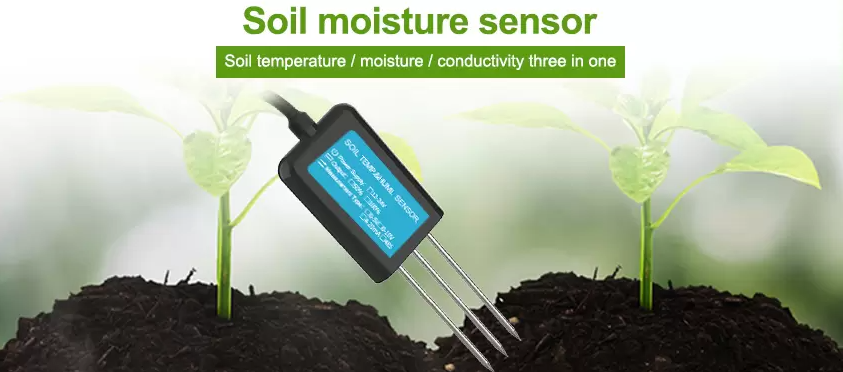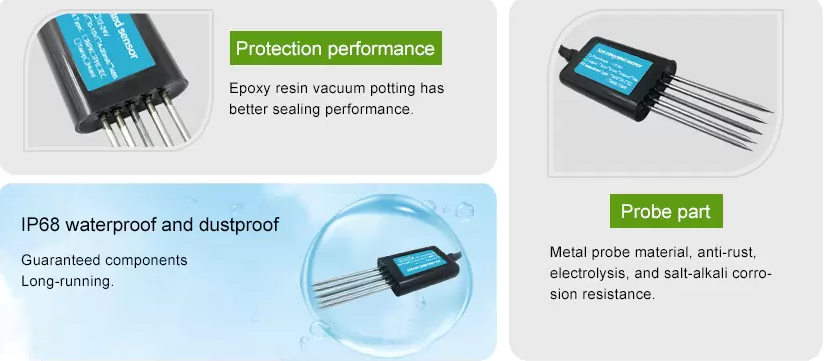Understand of soil moisture probe
A soil moisture probe is a device used to measure the moisture content in the soil, providing farmers with real-time data to make informed decisions about irrigation and water management. In the world of agriculture, optimizing water usage is crucial for crop growth and yield. One innovative technology that has revolutionized this aspect of farming is the soil moisture probe.

The advantages of using a soil moisture probe
One of the primary advantages of using a soil moisture probe is its ability to accurately determine when and how much water crops need. By inserting the probe into the soil, farmers can measure the moisture levels at different depths. This information helps them determine whether the soil is adequately moist or if irrigation is required. With precise data, farmers can avoid over-irrigation, which can lead to water wastage and leaching of nutrients, as well as under-irrigation, which can negatively impact crop health and yield.
Another advantage of soil moisture sensor is its ability to optimize water usage. By monitoring moisture at different depths, farmers can determine the best irrigation plan. Adjust to the specific needs of the soil type. This targeted irrigation method not only saves water, but also promotes better plant growth.

Furthermore, the soil moisture probe enables farmers to detect potential problems in the field promptly. For example, if the probe shows consistently high moisture levels in a particular area, it could indicate drainage issues or a malfunctioning irrigation system. By identifying these issues early on, farmers can take corrective measures to prevent crop damage and address water management problems effectively.
The installation and use of a soil moisture sensor are relatively straightforward. The probe can be easily inserted into the soil and connected to a central monitoring system or mobile application. Through the platform, farmers get real-time data about soil moisture levels, enabling them to make timely decisions about timely irrigation.
Moreover, soil moisture probes is a cost-effective solution for farmers. By accurately measuring soil moisture levels, they can avoid unnecessary water usage, reducing costs associated with irrigation. Additionally, by preventing over or under-irrigation, farmers can optimize crop yields and minimize losses, resulting in increased profitability.
Conclusion
In conclusion, soil moisture probes has revolutionized agriculture by providing farmers with accurate and real-time data on soil moisture levels. This technology optimizes water usage, promotes healthier crop growth, and helps identify potential issues early on. As agriculture continues to evolve, the use of soil moisture detectors will play a more important role in agricultural practices.
